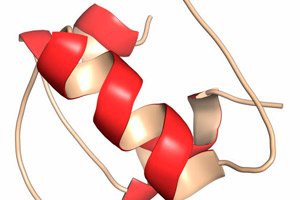
All iLive content is medically reviewed or fact checked to ensure as much factual accuracy as possible.
We have strict sourcing guidelines and only link to reputable media sites, academic research institutions and, whenever possible, medically peer reviewed studies. Note that the numbers in parentheses ([1], [2], etc.) are clickable links to these studies.
If you feel that any of our content is inaccurate, out-of-date, or otherwise questionable, please select it and press Ctrl + Enter.
Study reveals secrets of beta cell regeneration
Last reviewed: 03.07.2025
 ">
">Professor Heiko Likert, Director of the Institute for Diabetes Research and Regeneration at Helmholtz Munich, Professor at the Technical University of Munich (TUM) and Member of the German Diabetes Research Center (DZD), and his team discovered the protein Inceptor in 2021 and described its role as an inhibitor of the insulin signaling pathway. It turned out that both Inceptor and the insulin receptor are located on the surface of beta cells, where Inceptor blocks the insulin receptor, reducing the cells' sensitivity to insulin and weakening the signaling pathway. The new study has advanced this knowledge by showing that Inceptor binds excess insulin inside beta cells and targets it for destruction.
Regeneration of damaged beta cells
The elevated levels of Inceptor in beta cells indicate its role in the secretion of insulin regulated by these cells. This process is often disrupted in diabetes, leading to elevated blood sugar levels. By blocking the action of Inceptor, the researchers were able to restore insulin stores in beta cells, enhance its release, and prevent cell death.
"Particularly in already damaged cells, blocking Inceptor may help increase insulin production and protect beta cells," Professor Lickert said.
Hope for People with Type 2 Diabetes
The study's findings suggest that targeted blockade of Inceptor may be a promising strategy for improving the function of insulin-producing cells in people with diabetes. "Our goal is to develop new drugs that maintain insulin balance in cells and prolong their viability based on our discovery," Lickert said. Such therapy could be particularly useful in the early stages of type 2 diabetes to slow disease progression and reduce the risk of complications.
From Lab to Practice: A Startup for New Diabetes Therapy Methods
To put these discoveries into practice, Lickert founded a startup that is working on developing drugs that block Inceptor to protect or regenerate beta cells. The first steps require preclinical studies to assess the safety and efficacy of new therapeutic approaches. “Our goal is to pave the way for clinical trials and thus contribute to the treatment and, perhaps, the cure of diabetes,” Lickert emphasized.
The study was published in the journal Nature Metabolism.
